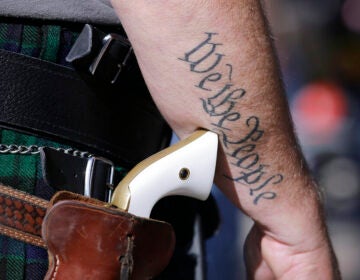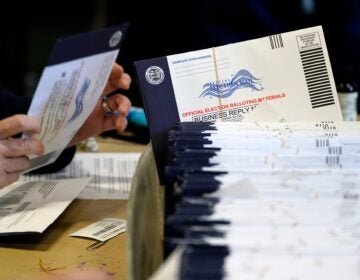Supreme Court says same-sex couples have right to marry in all 50 states
Listen-
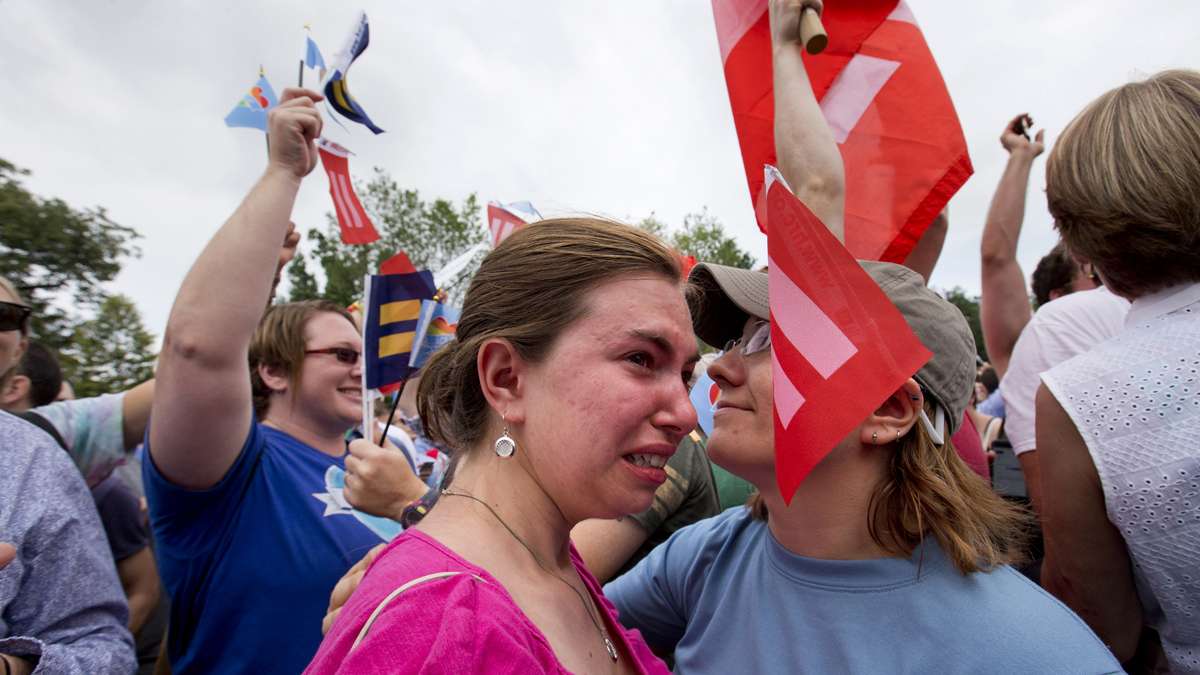
-
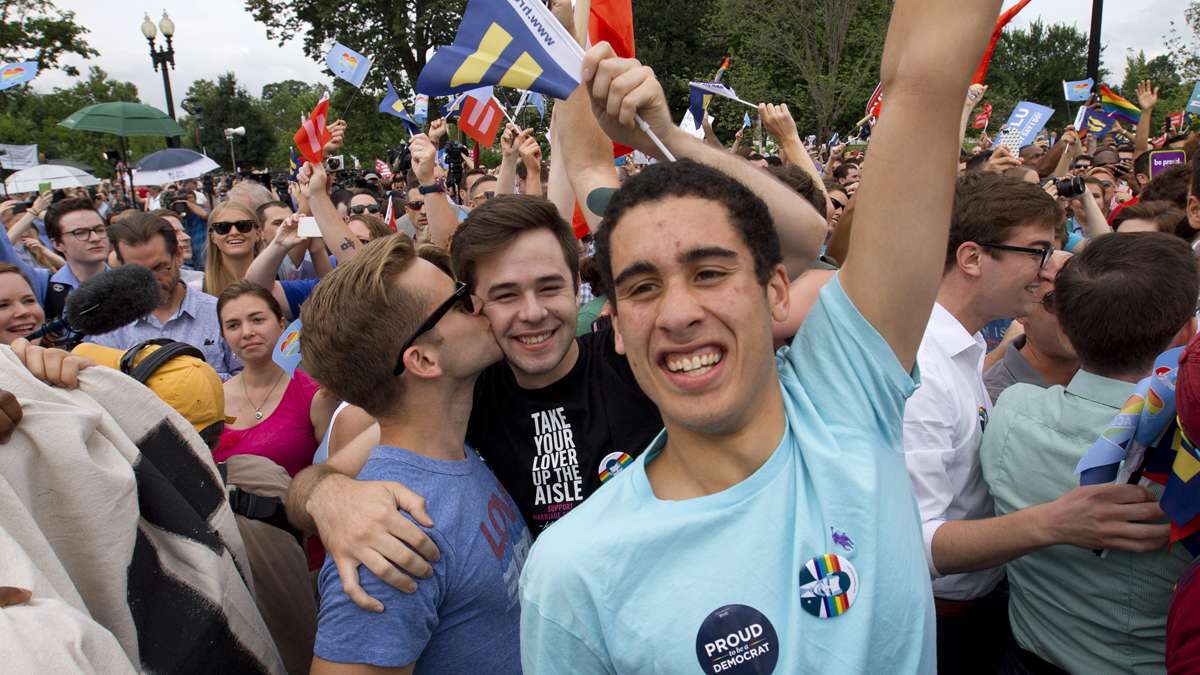
-
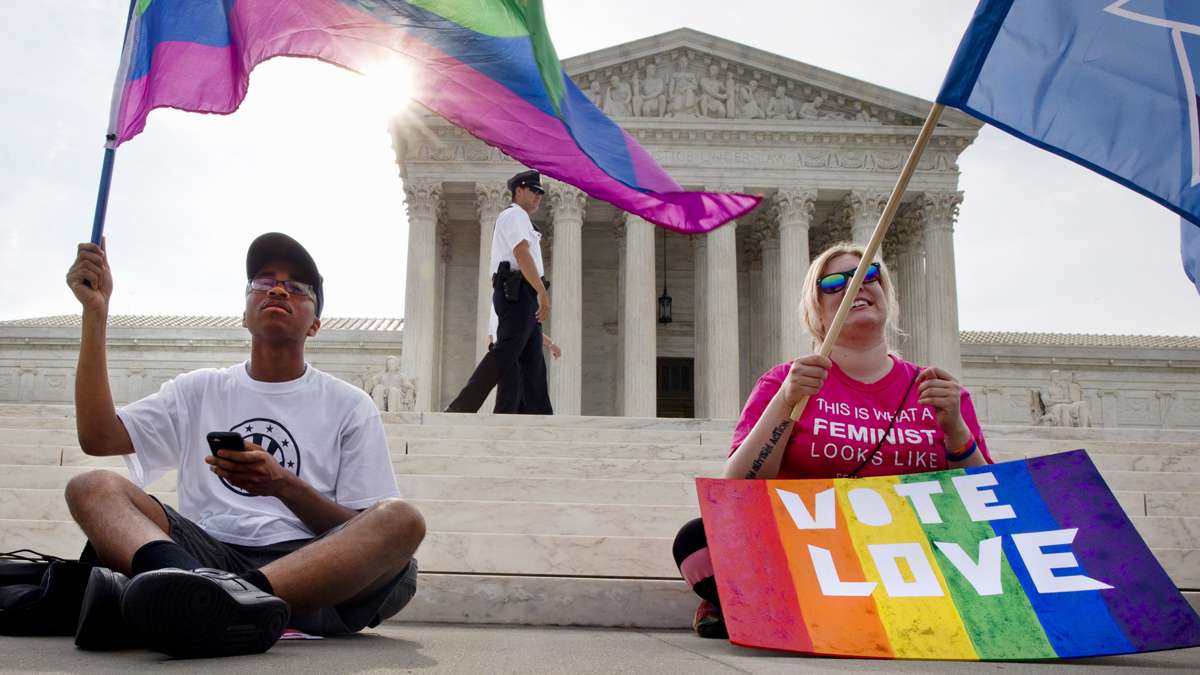
Carlos McKnight, 17, of Washington, (left), and Katherine Nicole Struck, 25, of Frederick, Md., hold flags in support of gay marriage as security walks behind outside of the Supreme Court in Washington, Friday June 26, 2015. (Jacquelyn Martin/AP Photo)
-
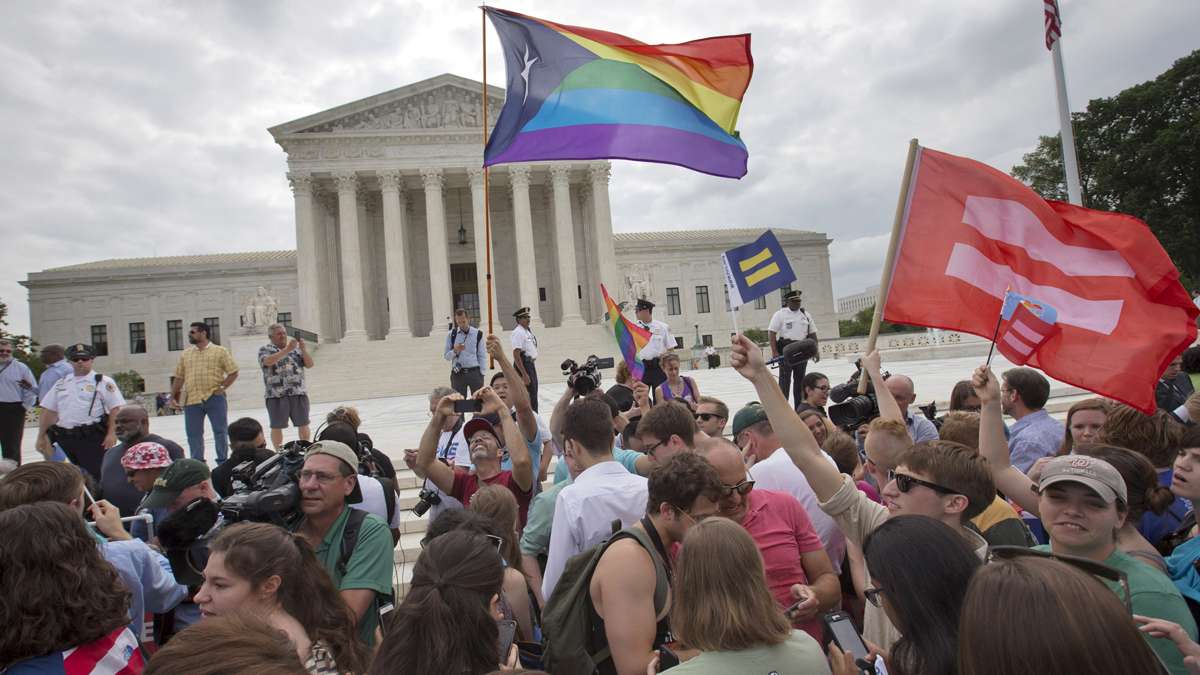
-
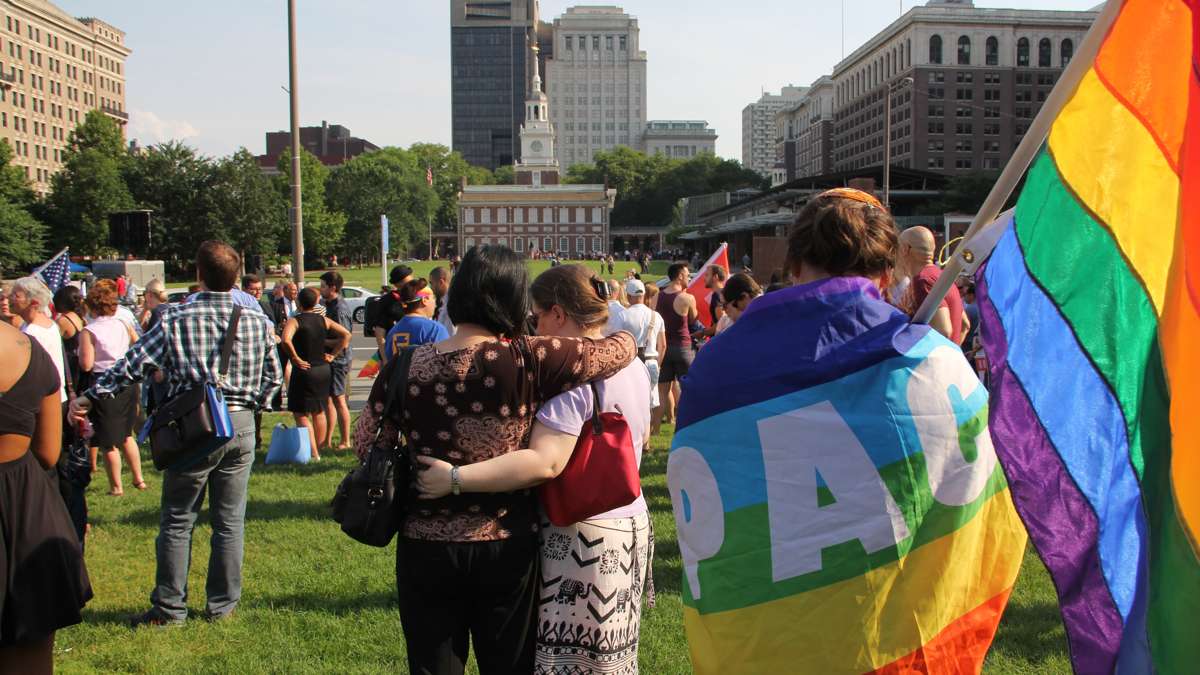
The Supreme Court declared Friday that same-sex couples have a right to marry anywhere in the United States.
Gay and lesbian couples already could marry in Pennsylvania and 35 other states and the District of Columbia. The court’s 5-4 ruling means the remaining 14 states, in the South and Midwest, will have to stop enforcing their bans on same-sex marriage.
The decision is a long time in the making for advocates, like Malcolm Lazin, the executive director of the Equality Forum, held annually, here in Philadelphia.
“Frankly I had to reflect back on 50 years ago when this movement got started at Independence Hall on July 4th of 1965. The gay pioneers at that time would never have believed 50 years later that the Supreme Court of the United States would affirm same-sex marriage.”
The outcome is the culmination of two decades of Supreme Court litigation over marriage, and gay rights generally.
Justice Anthony Kennedy wrote the majority opinion, just as he did in the court’s previous three major gay rights cases dating back to 1996. It came on the anniversary of two of those earlier decisions.
“No union is more profound than marriage,” Kennedy wrote, joined by the court’s four more liberal justices.
The four dissenting justices each filed a separate opinion explaining their views.
“But this court is not a legislature. Whether same-sex marriage is a good idea should be of no concern to us,” Chief Justice John Roberts wrote in dissent. Roberts read a summary of his dissent from the bench, the first time he has done so in nearly 10 years as chief justice.
Justice Antonin Scalia said he is not concerned so much about same-sex marriage, but about “this court’s threat to American democracy.” Justices Samuel Alito and Clarence Thomas also dissented.
Archbishop of Philadelphia, Charles J. Chaput also balked at the ruling.
“The Supreme Court’s 5-4 decision on marriage is not a surprise,” Chaput said. “The surprise will come as ordinary people begin to experience, firsthand and painfully, the impact of today’s action on everything they thought they knew about marriage, family life, our laws and our social institutions.”
The ruling will not take effect immediately because the court gives the losing side roughly three weeks to ask for reconsideration. But some state officials and county clerks might decide there is little risk in issuing marriage licenses to same-sex couples.
Gay-rights activist Jay Lassiter from Cherry Hill, New Jersey, says he’s hoping that those celebrating the ruling today don’t — in his words –“spike the football” since there are still many Americans who oppose same-sex marriage.”If we respond to this win with grace and tolerance and realize some people will feel harmed by this ruling, that will determine if in twelve years this will be settled, or if in 40 years we are still fighting about this like abortion,” Lassiter said.
The cases before the court involved laws from Kentucky, Michigan, Ohio and Tennessee that define marriage as the union of a man and a woman. Those states have not allowed same-sex couples to marry within their borders and they also have refused to recognize valid marriages from elsewhere.
Just two years ago, the Supreme Court struck down part of the federal anti-gay marriage law that denied a range of government benefits to legally married same-sex couples.
The decision in United States v. Windsor did not address the validity of state marriage bans, but courts across the country, with few exceptions, said its logic compelled them to invalidate state laws that prohibited gay and lesbian couples from marrying.
The number of states allowing same-sex marriage has grown rapidly. As recently as October, just over one-third of the states permitted same-sex marriage.
There are an estimated 390,000 married same-sex couples in the United States, according to UCLA’s Williams Institute, which tracks the demographics of gay and lesbian Americans. Another 70,000 couples living in states that do not currently permit them to wed would get married in the next three years, the institute says. Roughly 1 million same-sex couples, married and unmarried, live together in the United States, the institute says.
The Obama administration backed the right of same-sex couples to marry. The Justice Department’s decision to stop defending the federal anti-marriage law in 2011 was an important moment for gay rights and President Barack Obama declared his support for same-sex marriage in 2012.
WHYY is your source for fact-based, in-depth journalism and information. As a nonprofit organization, we rely on financial support from readers like you. Please give today.


